SCOTUS Punts on Free Speech Case
The court declined to review a preacher's lawsuit against my alma mater.
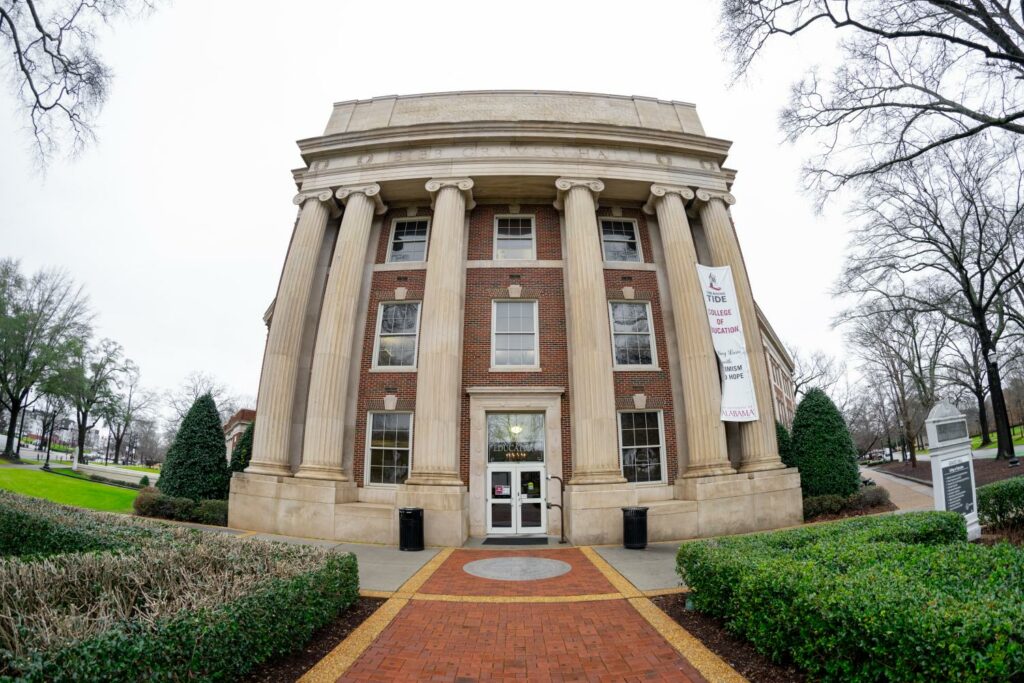
Reuters (“U.S. Supreme Court rejects Christian preacher’s challenge to university“):
The U.S. Supreme Court on Monday declined to hear a traveling Christian evangelist’s free-speech challenge to a University of Alabama requirement that he obtain a permit before handing out religious pamphlets and preaching from a sidewalk adjacent to its campus.
The justices turned away an appeal by preacher Rodney Keister of a lower court’s ruling rejecting his claim that the university’s permit requirement violated free speech rights under the U.S. Constitution’s First Amendment.
Keister, founder of a Pennsylvania-based group called Evangelism Mission, regularly visits U.S. university campuses in hopes of spreading his Christian message to students, according to court filings.
In 2016, Keister, along with a companion, preached using an amplifier and distributed Christian literature from a sidewalk adjacent to the University of Alabama campus in Tuscaloosa, trying to engage passersby. School officials told Keister he needed a permit for a public-speaking event, prompting him and his companion to leave.
The university’s policy at issue governed when, where and how a person unaffiliated with the school may engage in public speaking on campus including on sidewalks, other than “casual recreational or social activities.” It required a permit application 10 business days in advance – which has since been reduced to five business days – and sponsorship by a student organization or university academic department.
Keister in 2017 filed a civil rights suit against University of Alabama officials, arguing that the sidewalk’s status under the First Amendment is that of a “traditional public forum,” affording speakers the most robust protections available under the Constitution. Following losses in lower courts, Keister’s appeal in 2018 was turned away by the U.S. Supreme Court, prompting him to file an amended civil rights suit against school officials the next year.
A federal judge in 2020 ruled in favor of the school officials, finding that the sidewalk was a “limited public forum” – a status giving public universities and other government entities more leeway to regulate particular classes of speakers or kinds of speech. The Atlanta-based 11th U.S. Circuit Court of Appeals agreed last year.
Erik Jaffe, an attorney for Keister, expressed disappointment over the Supreme Court’s decision to turn away his client’s appeal.
“Whether public sidewalks remain traditional public forums with full First Amendment protection for free speech, regardless of their proximity to university or other restricted-use property, remains an important and unsettled issue, marked by inconsistent and unpredictable decisions,” Jaffe said. “We hope that the Supreme Court eventually steps in to rationalize and expand constitutional protections in this area, even if they passed on this current opportunity to do so.”
Lawyers representing the University of Alabama officials did not immediately respond to a request for comment.
The Supreme Court, which has a 6-3 conservative majority, in recent years has taken an expansive view of religious rights, though this case came to the justices as a free speech dispute.
It’s hard to know what to make of a non-ruling. While my general preference is that speech of this sort—using amplification and likely to disrupt others’ ability to go about their business—should be subject to reasonable time, place, and manner restrictions, I agree with Jaffe that SCOTUS rulings on these matters lack consistency.
While police departments at Alabama’s state-supported universities tend to be “state police,” giving them jurisdiction off campus and over citizens unaffiliated with the campus, I’m a bit curious as to how the university has the authority to regulate activities on sidewalks “adjacent” to campus. One would think that a matter for the city of Tuscaloosa.

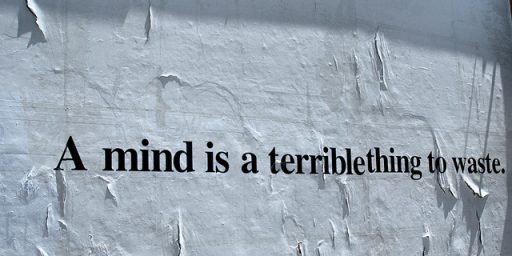
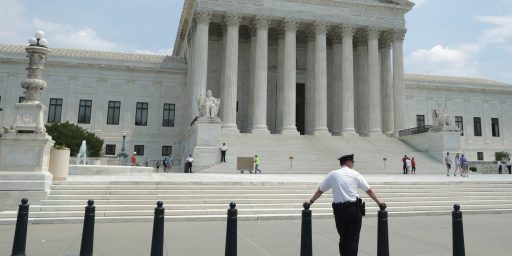
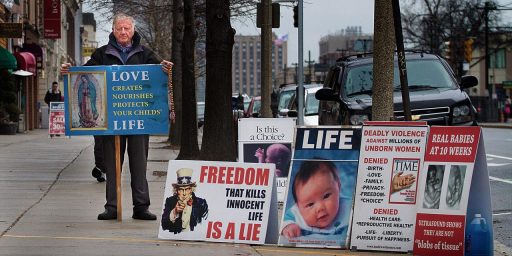

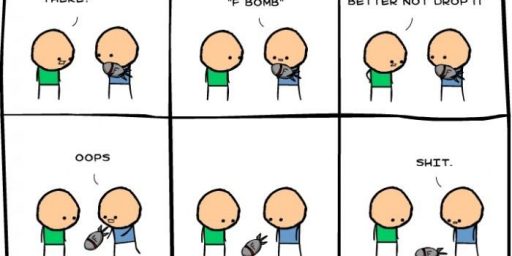
Rodney Keister????? A pastor is named Keister????
I’m with you on this James, I can see a restriction on amplification, but if he is simply preaching from a soapbox…
@CSK:
Rumor has it he’s a bit of an ass.
@Sleeping Dog:
I’ll say.
“In 2016, Keister, along with a companion, preached using an amplifier”. Gawd those people are obnoxious. Isn’t there a noise or public nuisance ordinance they can be charged with? And this seems to be a standard conservative misunderstanding of 1A. They seem to think it guarantees them access to any forum.
In the story as quoted there seems to be some ambiguity as to whether the sidewalk was University property and the reverend apparently based his suit on sidewalks being public forums, not on lack of jurisdiction.
If they are just talking and handing out pamphlets its OK with me. Once they amplify get a permit.
Steve
Why is SCOTUS wasting their time on this stuff when there’s a vital decision to be made about poop jokes? Nina Totenberg reports.
(yes… Nina Totenberg is reporting on poop jokes.)
The University of Cincinnati has a similar setup. In 2015 a UC cop off campus stopped a young black man for not having front license plate. (Northern KY is basically a Cincinnati suburb and KY does not require front plates. This makes it difficult to enforce front plates in Cincinnati and I think for the most part cops didn’t bother.) The driver ended up fatally shot in the head. The cop claimed he was being dragged by the driver. His bodycam video said otherwise. Two murder/manslaughter trials ended in hung juries and the case was dropped “with prejudice”. IANAL but I think that just means means the case was dropped. In the end the driver’s family got $4.85 mil from the U. They later also paid out $250,000 to the cop to settle a union grievance.
When I was at U of Ill decades ago we used to say you had to take the campus cops seriously, you never knew which one had had the bullet. Apparently since then campus cops got some warrior training.
The UI cops were accused of keeping records on anti-Vietnam protesters. They assured us they had no such records. A year or so later they said they were destroying the records they’d said they didn’t have.
@gVOR08:
IANAL, but I believe “with prejudice” means the case was dropped in such a way that it can’t be restarted later, while a case dropped “without prejudice” means that the plaintiff can amend and restart the case at a later date if they choose to.
@Stormy Dragon: Hmmmm… I seem to recall it the other way around. Where is is a lawyer when you need one?
It’s hard to tell in this case. It could mean that it is a topic that the court doesn’t believe it can rule on and/or that the justices on the court who would be sympathetic to one side or the other don’t think the composition of the court is correct to go in their preferred direction. Usually, it’s a combination of the two.
@OzarkHillbilly:
IANALBIAMTAFC*, @Stormy Dragon is correct. https://www.law.cornell.edu/wex/with_prejudice
[IANAL but I am married to a Federal Clerk]
@Stormy Dragon:
Correct. Given that this was a criminal matter, the court is saying that jeopardy has attached and as a result the defendant can’t be brought to trial again on those charges. Over and done / he walks.